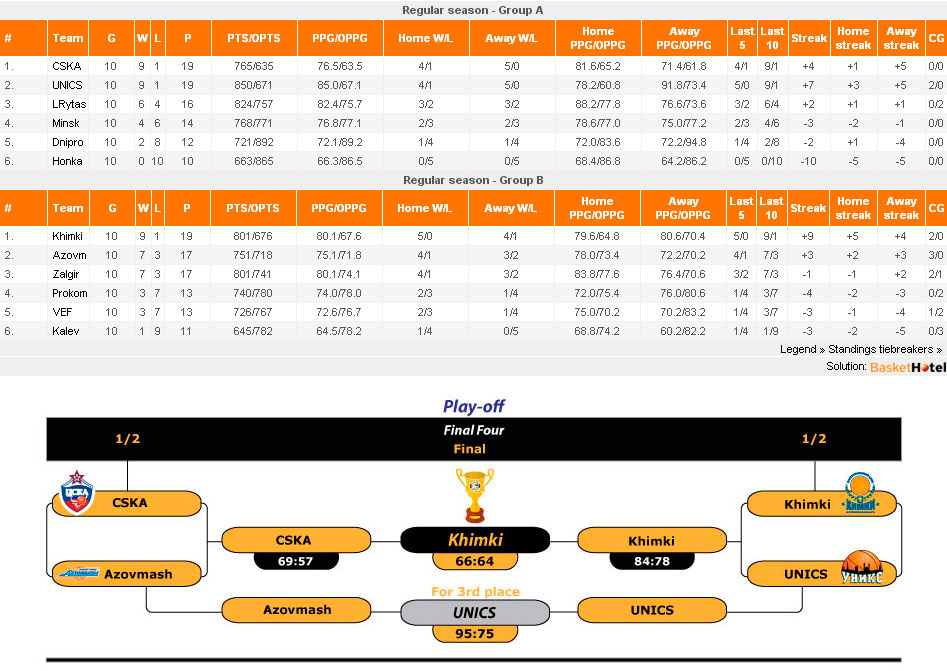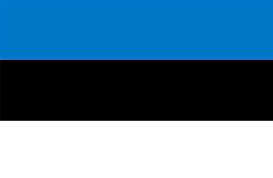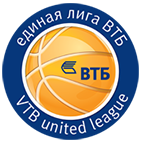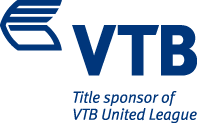History of the League
2010-11 Season. Kurtinaitis came, saw and conquered!
During the league's second season, the competition expanded to 12 teams from 8 countries and featured plenty of excitement, including a breakout performance from Azovmash and regular season MVP Ramel Curry, coaching changes at the top clubs, a thrilling Final Four in Kazan and a championship for Khimki under new head coach Rimas Kurtinaitis.
Back Story
The 2008 Promo-Cup and debut 2009-10 season lived up to expectations. The new competition was a success and league organizers looked to build on that momentum in 2010-11.
"I'm very happy that the VTB United League project continues to progress and develop. I'll start with the most important and exciting news for league participants: the league budget will increase significantly, totaling 115 million rubles in the upcoming season. 65 million rubles will be provided by our title sponsor, VTB Bank, while the rest will come from other partners. In addition, as we are running a professional commercial competition, VTB United League clubs will make good money," said league founder Sergey Ivanov prior to the start of the 2010-11 season.
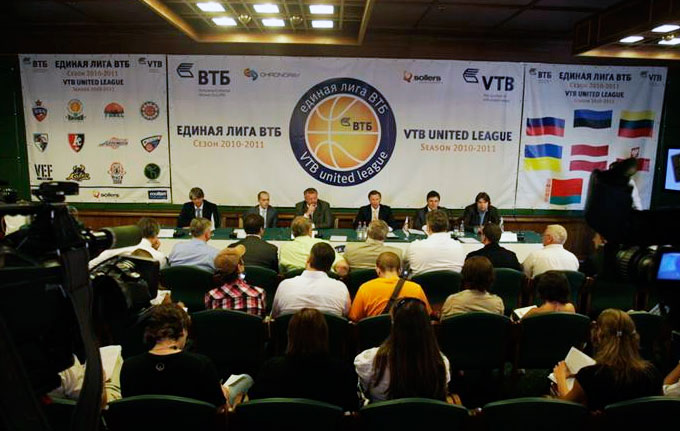
Format and Participants
The 2010-11 season was the second in VTB United League history. Compared to its debut season, the competition expanded its borders (from 5 to 8 countries) and number of participants (from 8 to 12 teams). Russia had the biggest contingent (CSKA, Khimki, UNICS), followed by Ukraine (Azovmash, Dnepr) and Lithuania (Zalgiris, Lietuvos Rytas). Latvia (VEF), Estonia (Kalev), Belarus (Minsk-2006), Poland (Asseco Prokom) and Finland (Honka) each had one club.
During the regular season, the teams were divided into two groups: Group A (CSKA, UNICS, Lietuvos Rytas, Minsk, Dnepr, Honka) and Group B (Khimki, Azovmash, Zalgiris, Prokom, VEF, Kalev). The playoffs once again featured a Final Four, with the top two teams from each group advancing to the postseason after a 10-game regular season.
Regular Season
The league's second season kicked off at the USH CSKA with a laser show and dance performance by the CSKA dance team set to the VTB United League anthem. The game featured CSKA vs. Lietuvos Rytas, with the reigning champions pulling away in the 4th quarter after a hard-fought opening 30 minutes.

In a clash between new clubs, Dnepr defeated Honka in overtime in Week 1. In Tallinn, Kalev lost a heartbreaker to VEF Riga in the final seconds, while Ukrainian champs Azovmash held off Polish champs Prokom in Mariupol.
Despite the exciting start, the regular season standings proved a bit more predictable. With four Final Four berths up for grabs, only Group B featured a close race for second. Having started with a win over the Euroleague quarterfinalists, Azovmash continued its fine form throughout the regular season. Thanks to a clean sweep against 2010 bronze medalists Zalgiris, the Ukrainians squeaked out the final playoff berth. The two teams met in the final game of the regular season, where Azovmash rode an outstanding performance from Ramel Curry to defeat Zalgiris in Kaunas and clinch a spot in the Final Four!
Khimki finished in first place in Group B, ending on a nine-game winning streak after dropping the first contest to Zalgiris. CSKA and UNICS also posted 9-1 records in Group A, splitting road victories while maintaining perfect records against other teams in the group. Lietuvos Rytas finished with a winning record in its debut season, but could not slow down the two powerhouses.
Surprise
Azovmash. Mariupol won just two games in its debut season and did not contend for a postseason berth. That changed in 2010-11. Azovmash went 4-0 against Euroleague clubs Prokom and Zalgiris, clinching a berth in the Final Four with a victory over Zalgiris in Kaunas at the legendary Sporthalle. The Lions' dizzying rise to the top demonstrated the unpredictability of the new competition.

Recurring Theme
Coaching changes at the league's top clubs were the recurring theme in 2010-11. CSKA, Zalgiris and Khimki each parted ways with their head coach in the first half of the season, appointed interim coaches, and finally hired new head coaches 1-3 months later.
It all started with Dusko Vujosevic, who was forced to leave CSKA in November 2010. Six losses in 14 games, including five in the Euroleague was not acceptable to CSKA's front office. 42-year-old Russian Dmitry Shakulin took over temporarily. Zalgiris and Khimki followed CSKA's example in December. Among the reasons for Kaunas's decision to part ways with Aco Petrovic was a loss to Azovmash. Sports director Rimantas Grigas became the interim head coach at Zalgiris. Finally, Khimki announced Sergio Scolario's resignation on December 21. The Italian had worked at the club for two years, but failed to achieve the desired results. Oleg Meleschenko was temporarily installed as head coach.

New head coaches weren't appointed until 2011. In the middle of January, Elijas Zuros took over at Zalgiris, while Jonas Kazlauskas got the job at CSKA in late February. Rimas Kurtinaitis was installed at Khimki on March 16, one month before the Final Four. The legendary Lithuanian, a gold medal winner at the 1988 Seoul Olympics, joined Khimki from VEF, where he had led the team to three wins and established his reputation as a top-quality coach (among other accomplishments, Kurtinaitis helped Belarusian center Artsiom Parakhouski earn a name for himself in Europe while playing at VEF). The Lithuanian coach's move to Khimki was seen as mutually beneficial, though few could have expected he would strike gold in his first month on the job.
Final Four
The final stage of the league's second season was held in Kazan. In addition to hosting the competition, UNICS was riding high thanks to victory in the Eurocup Final Four a few days earlier.
CSKA and Azovmash met in the first semifinal. After the failed experiment with Vujosevic and a changing of the guard, the Army Men were no longer the ruthless machine that had decimated opponents for eight years, while Azovmash had plenty of confidence thanks to wins over Zalgiris and Prokom. But the Ukrainians only stayed in the game for the first half. Led by the experienced J.R. Holden, Viktor Khryapa, Matjaz Smodis and Ramunas Siskauskas, CSKA's organization and focus was too much for Mariupol's more disjointed offense. CSKA advanced to the final game with a 69-57 victory.
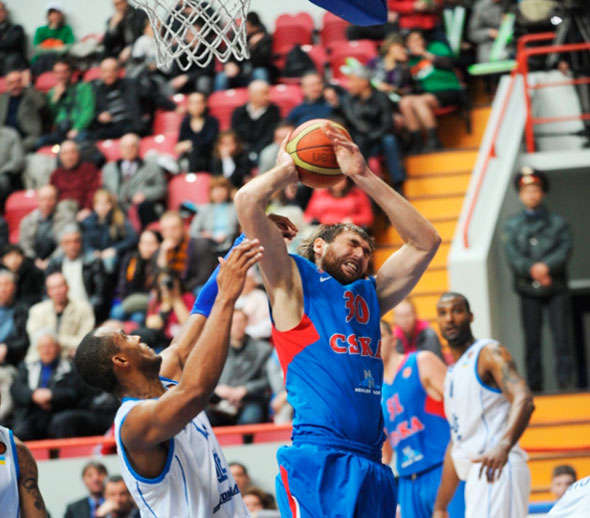
The second semifinal was much closer. UNICS had four ex-Khimki players on its roster, including three regulars: Maciej Lampe, Kelly McCarty and Vladimir Veremeenko. Khimki, meanwhile, boasted former UNICS star Kresimir Loncar on its roster. There was little either team could do to surprise its opponent. UNICS opened on an 8-0 run, but Khimki quickly got back in the game, before gradually taking control in the second helf. Vitaly Fridzon led the visitors with 27 points, helping Khimki pull out an 84-78 victory.
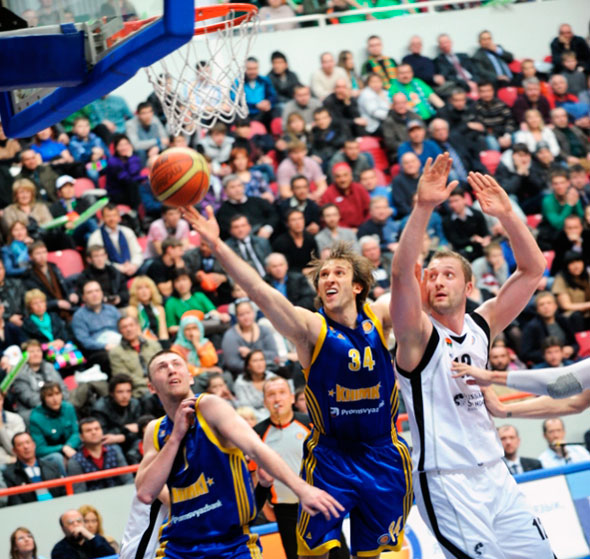
The Final Four in Kazan was extremely well run and included several fun events beyond the official games. The first-ever Friends of Basketball Game was held, featuring journalists vs. fans, coached by former stars Valery Tikhonenko and Anatoly Myshkin. The Final Four Open street basketball tournament was also a big hit. More than 100 teams took part in the competition, which was held near Kazan's Basket Hall.

The bronze medal in the Final Four went to UNICS, which simply refused to lose twice in a row at home. The White-Greens bounced back quickly from the semifinal disappointment, crushing Azovmash, 95-75.
That set up the final game: Khimki vs. CSKA.
Rimas Kurtinaitis's men dominated the opening minutes. Fridzon picked up where he left off in the semis, leading Khimki to a 14-point second-quarter lead. In response, CSKA dropped its zone defense for man-to-man, plus made substitutions. The momentum quickly shifted: a 16-0 run gave CSKA the 27-25 lead!
After halftime, neither team had much success building a lead until six straight points from Loncar put Khimki on top entering the final minutes. The game finished NBA-style, with CSKA committing several tactical fouls and both teams calling multiple timeouts.
With one second left on the clock, Jamont Gordon gave CSKA hope, drilling a 3-pointer to pull his club within a point, 65-64. The Army Men fouled immediately and Travis Hansen missed the second freebie, but CSKA didn't have much time to get a shot off. The ball ended up in Ramunas Siskauskas's hands, whose half-court heave proved off the mark. Khimki wins the VTB United League championship!
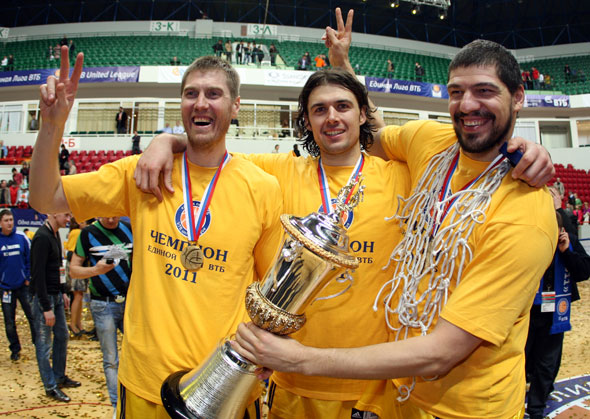
Stars
Azovmash was the biggest surprise of the season with much of the credit going to Ramel Curry. His terrific play in the regular season (18.4 points, 4.6 rebounds, 2.8 assists, 2.7 steals and an efficiency rating of 20.4) earned the American the MVP award.

UNICS's Marko Popovic continued to be one of the league's most dangerous players. He led the league in assists and was third in scoring. Maciej Lampe wreaked havoc in the frontcourt for UNICS, finishing in the top five for efficiency rating. His game against Honka during the regular season was especially memorable: 36 points, 15 rebounds and an efficiency rating of 46!
Trajan Langdon retired after the 2010-11 season, but the experienced veteran was an example in the locker room and on the court. The American finished the year as CSKA's top 3-point shooter.
Dnepr only won two games, but leader Steven Burtt was very impressive. The guard caused problems for opposing defenses, finishing second in scoring average and assists.
Martynas Gecevicius was one of the league's most dangerous perimeter shooters, averaging 55.8% from beyond the arc and 16.8 points per game, playing a big role in Lietuvos Rytas's success.
Vitaly Fridzon was one of the biggest factors in Khimki's triumph. The sharpshooter averaged just 22 minutes per game during the regular season, but he was unstoppable when it mattered most. Fridzon's 27 points in the semifinals gave Khimki a win over UNICS, while 11 points and 7 rebounds in the final gave him the second-best efficiency rating on the team as well as the top +/- rating. For his efforts, Fridzon received the Final Four MVP.
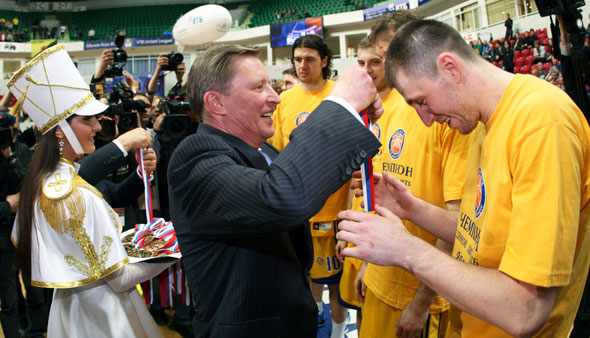
Stats
116. Lietuvos Rytas didn't stop CSKA or UNICS from reaching the Final Four, but went out with a bang. The Lithuanians scored 116 points against Dnepr in the final game of the regular season, a record which would stand until the 2014-15 season.
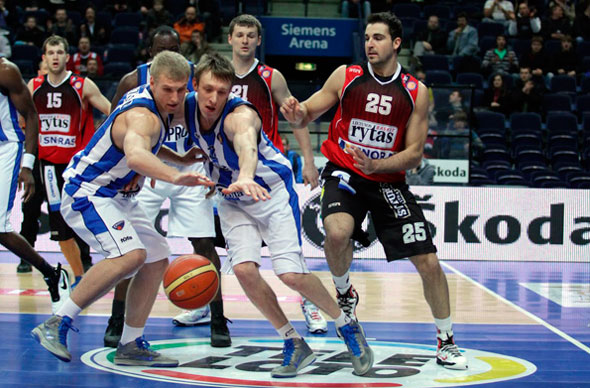
Event
Rimas Kurtinaitis took over in March, signing a contract for the rest of the season, with an option to extend one year. Khimki took a chance on him and Kurtinaitis responded, winning a championship in his first month on the job. Even an injury to Keith Langford and showdown vs. CSKA in the final could not stop the Moscow Region team.
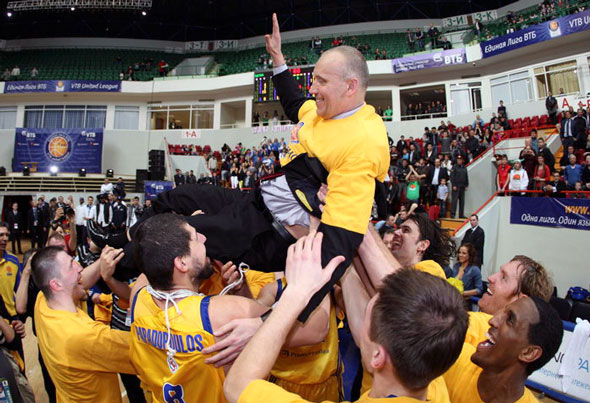
Khimki remains the only team to stop the Army Men in the VTB United League. As for Kurtinaitis, he continues to thrive at Khimki, now entering his fifth full season.
Video
Final Standings and Results
